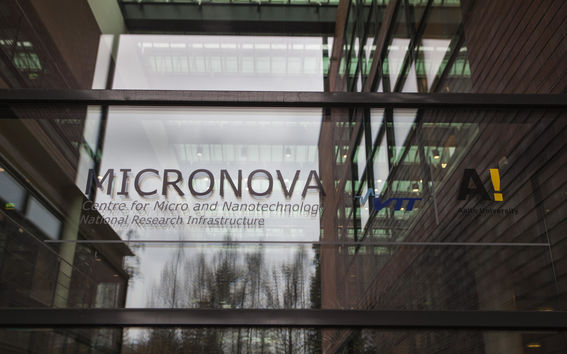The Finnish Research Impact Foundation awards funding to three joint projects between Aalto researchers and startup companies

The foundation awards two million euros in funding to support joint industry-academia projects. Aalto projects will be funded with 560 000 euros. A postdoctoral researcher hired in each of the projects will be working both in Aalto and in the partner companies.
In the project of Professor Mikko Möttönen, the strong academic expertise of Aalto University meets with a European leader in quantum computer hardware, IQM. The joint effort of these two front runners will bring major added value and expedite the growth and scale up of the academia and the industry. The project taps into the core of this revolution and helps the growing ecosystem to bring forward major innovations paving the way for a useful quantum computer. The first aim of the project is to implement the logical operations between the qubits, quantum bits, so precisely that they can be used in quantum computers. The second aim is to use cryogenic microwave measurements to find out what kind of a qubit design would be optimal in quantum computers.
Surface defects play a role in essentially all semiconductor devices. In this project, Academy researcher Jani Oksanen and his research group aim to study controlled oxidation processes developed by Comptek Solutions Oy to eliminate the detrimental effects of surface recombination in thermophotonic GaAs based optical cooler prototypes investigated at Aalto University. This enables a case study of using controlled oxidation in state-of-the-art compound semiconductor devices, potentially eliminating one of the key bottlenecks presently slowing down the development of optical cooling technologies.
The project led by Professor Hele Savin develops a new type of sensors with superior sensitivity. The project utilizes the sensor technology developed at Aalto University related to so-called black silicon, which is proven to have superior optical and electrical properties. Black silicon is, however, applicable material for detecting only near-visible light wavelengths, so the project will develop the technology for other frequency ranges. The commercial potential will be investigated with the help of the industrial partner ElFys Inc., who has relevant knowhow, facilities, as well as knowledge for the device requirements.
The Finnish Research Impact Foundation was launched in spring 2019 by the Finnish government. It was given an initial capital stock of 60 million euros. The mission of FRIF is to promote the impact of Finnish cutting-edge research by strengthening the connection and cooperation between academia and industry.
Further information:
Read more news

Significant donation to boost pavement engineering research and education
Companies and associations in the field have donated €400,000 to the School of Engineering.
Design strengthens industrial competitiveness – human-centered factory work at the core
Factory work is undergoing a transformation: new technologies and artificial intelligence are changing the content and roles of work. Aalto University’s Department of Design is studying this change from a human-centered perspective in the HiFive project.
Learning to slow down: cold-water swimming benefits explored in new study
Swimming in cold water offers a temporal slowdown, promoting stress management and mental clarity that lingers long after the experience, says research from Finland.






